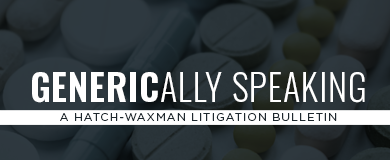- Acumen Powered by Robins Kaplan LLP®
- Affirmative Recovery
- American Indian Law and Policy
- Antitrust and Trade Regulation
- Appellate Advocacy and Guidance
- Business Litigation
- Civil Rights and Police Misconduct
- Class Action Litigation
- Commercial/Project Finance and Real Estate
- Corporate Governance and Special Situations
- Corporate Restructuring and Bankruptcy
- Domestic and International Arbitration
- Entertainment and Media Litigation
- Health Care Litigation
- Insurance and Catastrophic Loss
- Intellectual Property and Technology Litigation
- Mass Tort Attorneys
- Medical Malpractice Attorneys
- Personal Injury Attorneys
- Telecommunications Litigation and Arbitration
- Wealth Planning, Administration, and Fiduciary Disputes
Acumen Powered by Robins Kaplan LLP®
Ediscovery, Applied Science and Economics, and Litigation Support Solutions
-
April 29, 2024Robins Kaplan Mourns Death of New York Associate Waleed Abbasi
-
April 29, 2024Robins Kaplan Secures $7.75 Million Verdict in Aerosol Dust Remover Abuse Case
-
April 23, 2024David Martinez Recognized Among Top 100 Lawyers in Los Angeles by LA Business Journal
-
May 20, 2024The Present and Future of DEI
-
May 23, 202414th Annual Disability Justice Seminar
-
June 10-11, 20242024 Probate and Trust Law Section Conference
-
April 30, 2024A World Without Non-Competes: Protecting Confidential Information and Trade Secrets Following the FTC's Ban
-
First QuarterGENERICally Speaking: A Hatch-Waxman Litigation Bulletin
-
March 2024e-Commerce: Pitfalls and Protections
-
September 16, 2022Uber Company Systems Compromised by Widespread Cyber Hack
-
September 15, 2022US Averts Rail Workers Strike With Last-Minute Tentative Deal
-
September 14, 2022Hotter-Than-Expected August Inflation Prompts Massive Wall Street Selloff
Find additional firm contact information for press inquiries.
Find resources to help navigate legal and business complexities.
Azurity Pharms., Inc. v. Alkem Labs. Ltd.
Firvanq® (vancomycin)
May 04, 2023

Case Name: Azurity Pharms., Inc. v. Alkem Labs. Ltd., No. 20-cv-1094, 2023 WL 3254117 (D. Del. May 4, 2023) (Goldberg, J.)
Drug Product and Patent(s)-in-Suit: Firvanq® (vancomycin); U.S. Patent No. 10,959,948 (“the ’948 patent”)
Nature of the Case and Issue(s) Presented: Vancomycin is an antibiotic used to treat clostridium difficile bacterial infections. The ’948 patent claims a non-sterile stable liquid formulation consisting of a buffering agent, water, sweetener, a preservative, a flavoring agent, and vancomycin hydrochloride. Alkem argued that its ANDA product did not infringe the ’948 patent. The court agreed.
Why Alkem Prevailed: To prove infringement Azurity had to “fit each ANDA ingredient within the asserted claims.” In other words, no ANDA ingredient could be left over because any remaining ingredient would violate the “consisting of” preamble limitation. Azurity disagreed and argued that it had proven that mixing and matching certain ANDA ingredients turned them into the claimed ingredients. More particularly, Azurity argued that when grape flavor is mixed with propylene glycol, the combination is a “flavoring agent.” Because flavoring agent is a claimed ingredient, Alkem’s propylene glycol, which otherwise did not have a claimed function, would not violate the “consisting of” language.
As a threshold matter, Alkem argued that it could not infringe because its ANDA described the propylene glycol as a co-solvent. But the court explained that the ANDA was not determinative and that it did not preclude Azurity from offering evidence that propylene glycol also functioned as a flavoring agent.
Alkem argued that Azurity disclaimed propylene glycol during prosecution. In response, Azurity explained that this was a claim construction issue and that Alkem waived this argument by agreeing that no claim terms require construction. The court disagreed, finding that Alkem’s disclaimer argument was not a surprise given it was raised in its Answer to the Complaint. Additionally, the court explained that refusing to consider evidence on the meaning of “flavoring agent” would make the infringement inquiry more difficult. Specifically, without claim construction, the court could not decide whether grape flavor and propylene glycol combine to make a “flavoring agent.”
On the merits, the court found that disclaimer applied to Azurity’s claims. Specifically, the court found that during prosecution, Azurity argued that the absence of propylene glycol and polyethylene glycol in the claimed invention, distinguished it from the Examiner’s cited art. The court explained that because Azurity used the words “absence” and “does not include,” it could not now reverse course and say its invention includes propylene glycol.
Related Publications
Related News
If you are interested in having us represent you, you should call us so we can determine whether the matter is one for which we are willing or able to accept professional responsibility. We will not make this determination by e-mail communication. The telephone numbers and addresses for our offices are listed on this page. We reserve the right to decline any representation. We may be required to decline representation if it would create a conflict of interest with our other clients.
By accepting these terms, you are confirming that you have read and understood this important notice.
